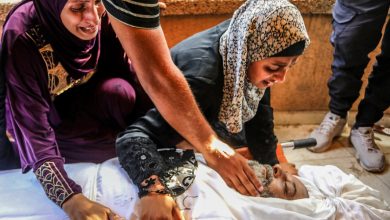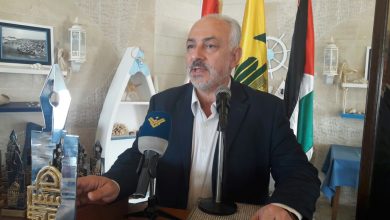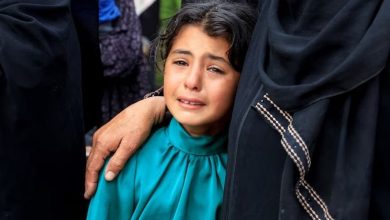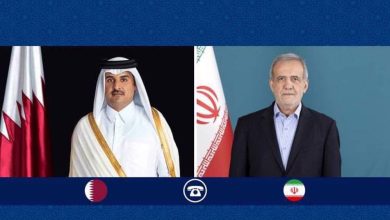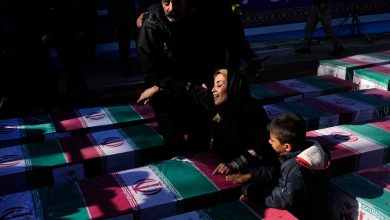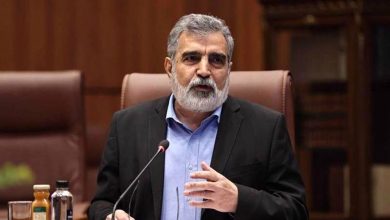IAEA Chief’s Comments on Iran Nuclear Sites ‘Lacking Legal Ground,’ Reflect ‘israeli’ Psychological Operations, Says Eslami
Iran's chief of nuclear affairs has dismissed recent statements made by the head of the United Nations atomic agency concerning the country's nuclear facilities, describing them as lacking both technical and legal substantiation. The official further suggested that these comments align with psychological operations conducted by Zionist entities against Tehran.
In a televised interview on Tuesday, Mohammad Eslami, chief of the Atomic Energy Organization of Iran (AEOI), responded to statements by the International Atomic Energy Agency (IAEA) Director General Rafael Grossi.
An Iranian official criticized Mr. Grossi’s comments, saying they lacked both technical and legal grounding. The official characterized the IAEA chief’s statements as being entirely influenced by “the psychological and political maneuvers” conducted by the Zionist regime of Israel against the Islamic Republic.
By making these remarks, Grossi has unmistakably revealed his true character, aligning himself with those who have long been conducting psychological operations against Iran.
Eslami was addressing remarks made by Grossi during an interview with i24NEWS, an Israeli television channel, where Grossi stated that the Israeli regime lacked the capability to “destroy” Iran’s nuclear infrastructure with “a single surgical strike.” The head of the International Atomic Energy Agency further commented that a disruption of these facilities would necessitate an “overwhelming and devastating force.”
Iran’s nuclear chief has criticized IAEA Director General Rafael Grossi, asserting that he overstepped his jurisdiction by commenting on matters beyond his purview. According to Eslami, international laws and precautions concerning these issues effectively strip Grossi of any right to interfere in such affairs.
Rafael Grossi stated, “Iran does not possess a nuclear weapon at this time,” yet asserted that “it has the material” necessary to construct one. This statement mirrors allegations from Israel and its Western allies, who have accused Iran of allegedly diverting efforts toward developing nuclear weapons or harboring intentions to do so.
The campaign has recently emerged through the IAEA Board of Governors’ issuance of a new resolution critical of Iran, influenced by significant Western and Israeli pressure.
The campaign continues to intensify as the Islamic Republic remains the most thoroughly vetted member of the International Atomic Energy Agency (IAEA). The agency has yet to uncover any evidence to support claims of an alleged “diversion.”
Tehran has unequivocally dismissed the possibility of pursuing, acquiring, or possessing nuclear weapons, citing adherence to moral and religious principles.
Grossi further claimed that the Islamic Republic possessed a “determination” to develop nuclear weapons. He also noted that potential Israeli military action against the country might have a unifying impact, potentially strengthening Iran’s resolve.
He further highlighted the ongoing threats from the Israeli regime to launch military attacks on Iran’s nuclear sites, suggesting that such threats indicate a significant potential for the situation with Iran to escalate into a catastrophic event.
Eslami criticized Grossi for showing support towards Israel, a nation that possesses nuclear weapons and is not a signatory of the IAEA’s Safeguards Agreement, which prevents any inspection of its nuclear facilities, unlike Iran.
The Iranian official further expressed regret over the comments made by the IAEA chief, suggesting that “international organizations, including the UN nuclear agency, are being used as tools by dominant powers and are heavily influenced by Israel.”
In contrast, Iran’s firm stance against actions taken by the Israeli regime, particularly those impacting Palestinians in the Gaza Strip, demonstrates that the Islamic Republic maintains what Eslami describes as a “realistic” perspective on the rights of various nations confronting external aggression.


